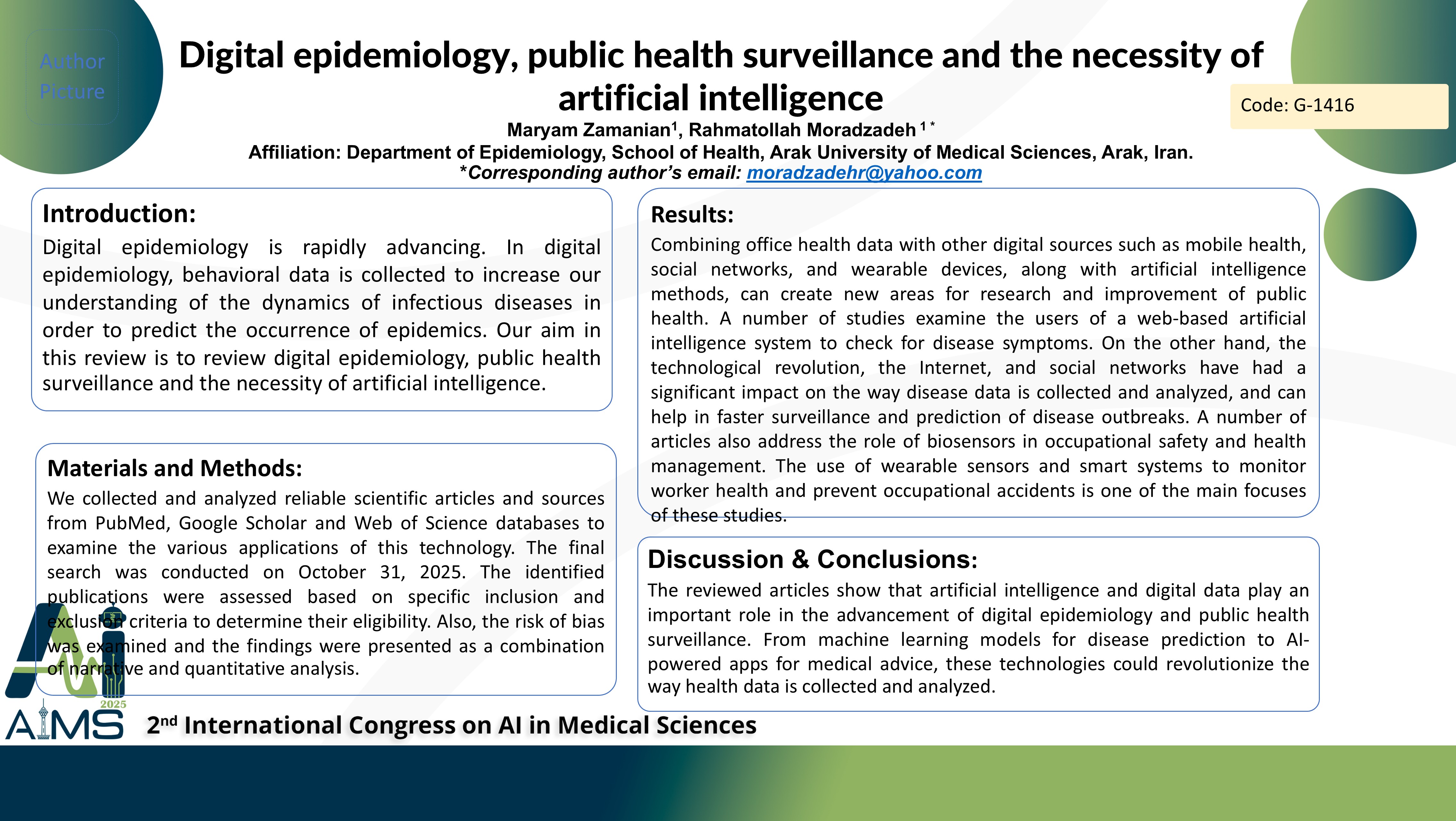Digital epidemiology, public health surveillance and the necessity of artificial intelligence
Code: G-1416
Authors: Maryam Zamanin ℗, Rahmatollah Moradzadeh *
Schedule: Not Scheduled!
Tag: Biomedical Signal Processing
Download: Download Poster
Abstract:
Abstract
Background and aims: Digital epidemiology is rapidly advancing. In digital epidemiology, behavioral data is collected to increase our understanding of the dynamics of infectious diseases in order to predict the occurrence of epidemics. Our aim in this review is to review digital epidemiology, public health surveillance and the necessity of artificial intelligence. Methods: We collected and analyzed reliable scientific articles and sources from PubMed, Google Scholar and Web of Science databases to examine the various applications of this technology. The final search was conducted on October 31, 2025. The identified publications were assessed based on specific inclusion and exclusion criteria to determine their eligibility. Also, the risk of bias was examined and the findings were presented as a combination of narrative and quantitative analysis. Results: Combining office health data with other digital sources such as mobile health, social networks, and wearable devices, along with artificial intelligence methods, can create new areas for research and improvement of public health. A number of studies examine the users of a web-based artificial intelligence system to check for disease symptoms. On the other hand, the technological revolution, the Internet, and social networks have had a significant impact on the way disease data is collected and analyzed, and can help in faster surveillance and prediction of disease outbreaks. A number of articles also address the role of biosensors in occupational safety and health management. The use of wearable sensors and smart systems to monitor worker health and prevent occupational accidents is one of the main focuses of these studies. Conclusion: The reviewed articles show that artificial intelligence and digital data play an important role in the advancement of digital epidemiology and public health surveillance. From machine learning models for disease prediction to AI-powered apps for medical advice, these technologies could revolutionize the way health data is collected and analyzed.
Keywords
Artificial Intelligence, Surveillance, Digital Epidemiology
